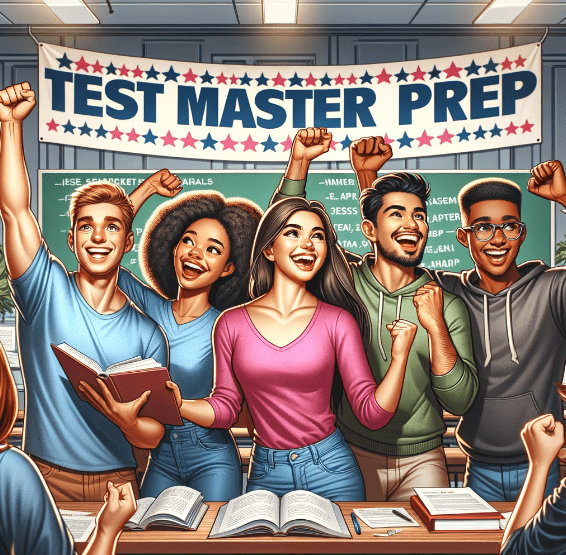CLAT Alternatives Law Careers are plentiful, even if you didn’t achieve your desired CLAT score. Don’t despair; many excellent paths lead to a successful legal career. Central universities across India offer high-quality legal education at a fraction of the cost of NLUs. These institutions boast strong reputations and produce highly sought-after graduates, making them a compelling alternative for those seeking both quality and affordability. Furthermore, their diverse student bodies create enriching learning environments, fostering personal and professional growth. This makes exploring CLAT Alternatives Law Careers a smart move.
Table of Contents
Therefore, consider prestigious central universities like Banaras Hindu University (BHU) or Delhi University, which offer excellent programs. Similarly, Allahabad University and the Central University of South Bihar provide accessible routes through the CUET. Moreover, Jamia Millia Islamia and Aligarh Muslim University offer exceptional BA LLB programs. These CLAT Alternatives Law Careers provide diverse specializations and strong foundations for successful legal careers. Ultimately, exploring these options ensures you find a path that aligns with your goals and aspirations.
We also Published
Exploring Prestigious Central Universities: A Viable Alternative
For aspirants who did not secure their desired CLAT scores, despair not! The legal landscape offers a multitude of enriching avenues, providing access to top-tier legal education without the constraints of CLAT. Central universities across India present a compelling alternative, offering high-quality legal education at a significantly reduced cost compared to the esteemed National Law Universities (NLUs). These institutions boast a rich history of academic excellence and produce graduates who are highly sought after in the legal profession. The accessibility of these universities, combined with their robust curricula, makes them an attractive option for students seeking both quality and affordability. Furthermore, the diverse student body within these universities fosters a rich learning environment, allowing students to engage with a wide range of perspectives and experiences, enriching their legal understanding and professional development. The competitive landscape within these institutions also encourages academic rigor and personal growth, preparing students for the demands of a challenging and rewarding legal career. The reduced financial burden allows students to focus on their studies and extracurricular activities, fostering a holistic development that extends beyond the confines of the classroom. This approach to legal education offers a balanced and enriching experience that prepares students for success in the legal field.
Institutions such as Banaras Hindu University (BHU) stand as beacons of academic excellence, offering a long-standing tradition of legal scholarship and a supportive learning environment. The University’s commitment to providing quality education at an affordable price makes it a highly sought-after destination for aspiring lawyers. Similarly, Delhi University’s recently introduced five-year integrated law course provides a comprehensive legal education, combining theoretical knowledge with practical application. This innovative program prepares students for the complexities of the legal profession, equipping them with the skills and knowledge needed to excel in their chosen field. For students in North India, Allahabad University and the Central University of South Bihar (Gaya) offer accessible pathways to legal education through the Common University Entrance Test (CUET), catering to both undergraduate and postgraduate students. These universities provide a diverse range of legal specializations, allowing students to tailor their education to their specific interests and career goals. The accessibility and affordability of these institutions make them a highly attractive option for students seeking a rewarding legal career.
Beyond the aforementioned institutions, Jamia Millia Islamia and Aligarh Muslim University offer exceptional BA LLB programs, renowned for their rigorous academic standards and commitment to fostering a diverse and inclusive learning environment. These universities provide a supportive and stimulating learning environment, enabling students to develop their legal skills and knowledge to the fullest extent. Each university has its own distinct entrance examination, providing an opportunity for students to showcase their abilities and demonstrate their suitability for legal studies. The unique academic culture of these universities, combined with their commitment to academic excellence, creates a truly enriching and rewarding learning experience. These institutions provide a strong foundation for a successful legal career, preparing graduates to meet the challenges and opportunities of the modern legal profession. The emphasis on both theoretical and practical training ensures that graduates are well-equipped to navigate the complexities of the legal world.
Postgraduate Legal Studies: Specialization and Advancement
For those who have achieved commendable scores in the CLAT PG examination, the Indian Institute of Technology Kharagpur (IIT Kharagpur) presents a unique opportunity to specialize in Intellectual Property Rights (IPR) through its highly regarded LLM program. This specialized program is designed to equip students with the advanced knowledge and skills required to navigate the increasingly complex field of intellectual property law. The rigorous curriculum, coupled with a strong emphasis on practical application, ensures that graduates are well-prepared to tackle the challenges of this dynamic legal area. The program’s selective admission process, involving an entrance exam and a personal interview, ensures that only the most qualified candidates are admitted, fostering a highly competitive and intellectually stimulating learning environment. The program’s focus on IPR, a rapidly growing field, provides graduates with a competitive edge in the job market, opening doors to a wide range of career opportunities in both the public and private sectors. The reputation of IIT Kharagpur, a globally recognized institution of higher learning, further enhances the value and prestige of this specialized LLM program.
The specialized nature of the IIT Kharagpur LLM in IPR offers a significant advantage to graduates seeking to enter this lucrative and rapidly expanding field. The program’s curriculum is designed to provide students with a comprehensive understanding of all aspects of intellectual property law, including patents, trademarks, copyrights, and trade secrets. Students gain practical experience through internships, research projects, and participation in moot court competitions, further enhancing their skills and preparing them for real-world legal practice. The faculty comprises leading experts in the field of IPR, providing students with access to cutting-edge knowledge and insights. The program’s focus on practical application ensures that graduates are not only well-versed in the theoretical aspects of IPR law but also possess the practical skills needed to succeed in the profession. The combination of academic rigor and practical training makes this program a highly sought-after qualification for aspiring intellectual property lawyers.
Beyond IIT Kharagpur, other prestigious institutions offer specialized LLM programs catering to diverse interests within the legal field. These programs provide advanced training in specific areas of law, allowing students to develop expertise in a chosen niche. The specialized knowledge and skills acquired through these programs enhance career prospects significantly, making graduates highly sought after by employers. The rigorous curriculum and demanding academic standards ensure that graduates possess the knowledge and skills needed to excel in their chosen field. The networking opportunities provided by these programs also play a crucial role in career advancement, connecting students with leading professionals and potential employers. The combination of specialized knowledge, practical skills, and networking opportunities makes these LLM programs a valuable investment for aspiring legal professionals.
Governmental Opportunities: Serving the Nation Through Law
The Ministry of Home Affairs (MHA) in India offers exceptional career paths through its esteemed institutions, the National Forensic Sciences University (NFSU) and the National Defence University (NDU). These institutions provide a unique blend of legal and scientific training, offering opportunities for students interested in specializing in forensic science, cybersecurity, and national security. The NFSU, with branches across India, offers undergraduate programs such as BSc LLB (Data Science) and postgraduate options including LLM in Cyber Law and Cyber Crime Investigation and LLM in Criminal Law. These programs equip students with the skills and knowledge needed to address the growing challenges in these critical areas. The rigorous curriculum combines theoretical knowledge with hands-on practical training, ensuring that graduates are well-prepared for the demands of these challenging professions. The reputation of the NFSU as a leading institution in forensic science and cyber law makes its graduates highly sought after by government agencies and private organizations.
The Rashtriya Raksha University (RRU), another institution under the MHA, provides undergraduate programs such as BBA LLB and postgraduate programs including LLM in Maritime Security and LLM in Port and Ship Security. These programs cater to the growing need for legal professionals specializing in national security and maritime law. The curriculum is designed to provide students with a comprehensive understanding of the legal and regulatory frameworks governing these critical areas. The RRU’s focus on practical application ensures that graduates are well-equipped to handle the challenges of these specialized fields. The university’s location and its strong ties with government agencies provide students with valuable networking opportunities and access to practical experience. Graduates from RRU are highly sought after by government agencies and private organizations involved in national security and maritime affairs.
Both NFSU and RRU consider CLAT scores as part of their admission process, but RRU also conducts its own entrance test. This dual approach allows the universities to select the most suitable candidates based on a comprehensive assessment of their academic achievements and potential. The competitive nature of the admission process ensures that only the most qualified and dedicated students are admitted to these prestigious institutions. The emphasis on practical training and hands-on experience differentiates these programs from traditional legal education, providing graduates with a unique skill set highly valued in the job market. The opportunities for career advancement within these institutions and government agencies are substantial, offering rewarding careers in service to the nation. These institutions offer a unique blend of legal education and specialized training, providing graduates with a distinct advantage in the job market.
Alternative Legal Career Paths: Embracing Diverse Opportunities
The legal field extends beyond traditional law firms and courtrooms. Numerous alternative career paths offer fulfilling and rewarding opportunities for law graduates. Legal research, a crucial aspect of the legal profession, offers a chance to contribute to the development of legal scholarship and policy. Legal researchers work on complex legal issues, conducting in-depth analysis and providing expert advice to lawyers, judges, and policymakers. This role requires strong analytical and research skills, meticulous attention to detail, and a deep understanding of legal principles. The ability to synthesize complex information and present it clearly and concisely is also essential. Legal research offers a intellectually stimulating career path for those who enjoy delving into complex legal issues and contributing to the advancement of the legal field.
Legal writing and editing are also crucial skills in the legal profession. Legal writers and editors craft clear, concise, and persuasive legal documents, ensuring that legal arguments are presented effectively and accurately. This involves meticulous attention to detail, a strong understanding of legal terminology, and the ability to communicate complex legal concepts in a clear and accessible manner. Legal writing and editing skills are highly valued in law firms, government agencies, and corporations. Those with strong writing and editing skills can find fulfilling careers in legal publishing, legal technology, and other related fields. The ability to communicate effectively is a crucial skill in the legal profession, and those who excel in legal writing and editing can make a significant contribution to the field.
The rise of legal technology has created new and exciting career opportunities for those with legal expertise and technological skills. Legal tech professionals use technology to improve the efficiency and effectiveness of legal processes. This includes developing legal software, managing legal databases, and using data analytics to support legal decision-making. Legal tech professionals need a strong understanding of both law and technology, as well as the ability to work collaboratively with lawyers and other professionals. The demand for legal tech professionals is growing rapidly, making this a promising career path for those with the right skills and experience. The intersection of law and technology is transforming the legal profession, creating new opportunities for those who are adept at both.
We also Published
RESOURCES
- Law Career Alternatives after CLAT 2024
- Beyond law firms: 6 diverse opportunities for CLAT aspirants
- 10 career opportunities available after CLAT? – CLAT Study Materials
- Career Opportunities Post CLAT-Motivation for CLAT 2025 Aspirants
- Exploring various Career Paths Available after CLAT 2025 – Physics Wallah
- Career in Law: Opportunities Beyond CLAT 2025
- Best New-Age Career Options After Clearing CLAT 2025 – GetMyUni
- Career Opportunities after Law (CLAT): Scope and Salary
- Urgently Hiring Now – Job Opportunities
- Career Opportunities after CLAT | Abhyaas Lawprep”
- Top Alternatives for Students Who Didn’t Clear CLAT 2025
From our network :
- SQL Combine Tables: Efficiently Joining Data with Conditions
- head command on multiple files
- Efficient SAS Data Merging: A Step-by-Step Guide
- GPS Jamming in Norway: A New Normal for Pilots
- Groundbreaking Deep Brain Stimulation Restores Mobility in Paralysis
- Understanding L'Hôpital's Rule for Limits: A Comprehensive Guide
- Bald Eagle is the Officially the U.S. National Bird!
- Nissan’s Restructuring: A Gamble for Revival in the EV Era
- Will Justin Trudeau’s Resignation Impact Canadian Politics?






